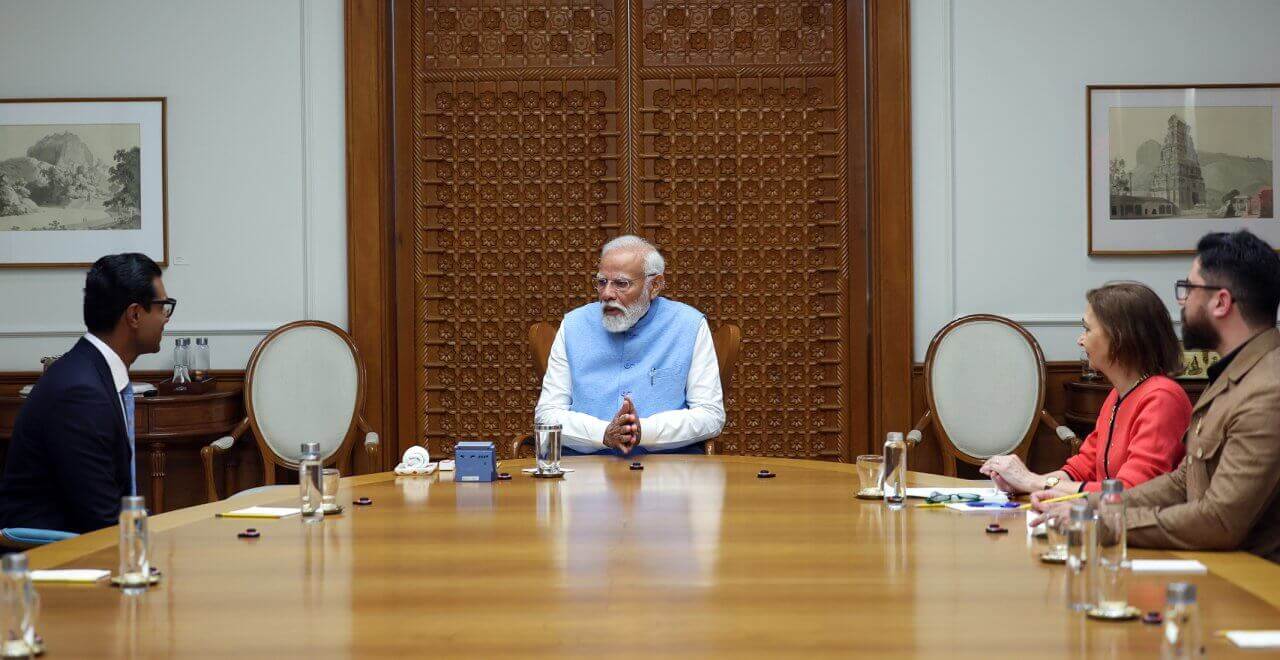In an interview with Newsweek on Wednesday, Indian PM Narendra Modi said India and China must urgently address the “prolonged situation” on their borders. In a visible softening of tone on China, Modi highlighted that stable ties between the two nations are important for the entire region and the world.
India-China Border Dispute
“For India, the relationship with China is important and significant,” Modi said, calling for an early resolution of the border dispute “so that the abnormality in our bilateral interactions can be put behind.” Moreover, Modi expressed hope that the two sides “will be able to restore and sustain peace and tranquillity” on the borders “through positive and constructive bilateral engagement at the diplomatic and military levels.”
Ties between India and China are at a historic low since the Galwan Valley Clash in 2020. The two countries have been trading barbs recently, with China renaming several villages in the Indian state of Arunachal Pradesh and claiming the region as its own. While Beijing and New Delhi continue to engage in border talks, the situation remains grim, with over 50,000 troops stationed on the border and disengagement yet to take place on crucial points of Depsang and Demchok.
Do read my interview with @Newsweek, in which I have shared my thoughts on various issues, both domestic and international. https://t.co/l4lejBTFfI@NancyCooperNYC @TellDM
— Narendra Modi (@narendramodi) April 10, 2024
Quad and China
Modi highlighted India's strong economic ties with the US and addressed accusations that the Quad—US, Australia, Japan, and India—targets China, emphasising that all members participate in multiple groups. “Like many other international groupings, like SCO, BRICS, and others, Quad is also a group of like-minded countries working on a shared positive agenda,” the Indian PM added.
Modi called the Indo-Pacific the “engine of global trade, innovation, and growth.” He held that the region’s security is essential not only to the region but also to the world. The PM underscored that one of the Quad's primary goals is to establish a free, open, and inclusive Indo-Pacific.
Modi also commented on India’s competition with China in the interview. As businesses look to diversify their supply chains, Modi said that India is a natural choice as a “democratic polity and global economic growth engine.” “I would not like to draw comparisons with China and Japan as each country faces unique challenges and has unique development models,” he asserted.
On Pakistan
Modi affirmed India's commitment to promoting peace, security, and prosperity in the region in an environment free from terror and violence. Modi said he had congratulated Pakistani PM Shehbaz Sharif on assuming office but declined to comment on the imprisonment of former Pakistani PM Imran Khan, stating that he "wouldn't comment on matters internal to Pakistan."
Democracy, Religious Minorities
Modi also countered the various allegations of religious discrimination against the BJP-led government in the interview. “These are usual tropes of some people who don’t bother to meet people outside their bubbles,” he asserted. The PM claimed that Indian minorities, including Muslims, Christians, Buddhists, Sikhs, Jains and Parsis, are “living happily and thriving in India.”
Additionally, he stressed that India is a democracy, not because its Constitution says so but also because “it is in our genes.” He added that people living in an “echo chamber of alternate realities” attempt to conflate their dissonance with people with “dubious claims of diminishing media freedom.

